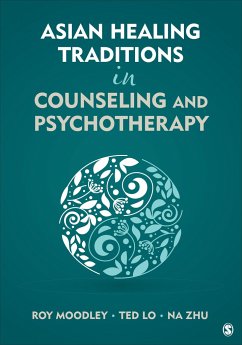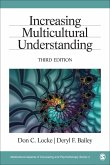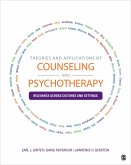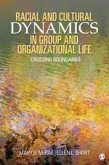Jerrold L Shapiro
Pragmatic Existential Counseling and Psychotherapy
Intimacy, Intuition, and the Search for Meaning
Jerrold L Shapiro
Pragmatic Existential Counseling and Psychotherapy
Intimacy, Intuition, and the Search for Meaning
- Broschiertes Buch
- Merkliste
- Auf die Merkliste
- Bewerten Bewerten
- Teilen
- Produkt teilen
- Produkterinnerung
- Produkterinnerung
Turning existential therapy on its head, this exciting, all-new title approaches the theory from a positive, rather than the traditional deficit model. Authored by a leading figure in existential therapy, Jerrold Lee Shapiro, the aim is to make existential therapy positive and easily accessible to a wide audience through a pragmatic, stage wise model. Shapiro expands on the work of Viktor Frankl and focuses on delivery to individuals and groups, men and women, and evidence based therapy. The key to his work is to help the client focus on resistance and to use it as a means of achieving…mehr
Andere Kunden interessierten sich auch für
![Counseling Individuals Through the Lifespan Counseling Individuals Through the Lifespan]() Daniel W WongCounseling Individuals Through the Lifespan199,99 €
Daniel W WongCounseling Individuals Through the Lifespan199,99 €![Asian Healing Traditions in Counseling and Psychotherapy Asian Healing Traditions in Counseling and Psychotherapy]() Asian Healing Traditions in Counseling and Psychotherapy122,99 €
Asian Healing Traditions in Counseling and Psychotherapy122,99 €![Increasing Multicultural Understanding Increasing Multicultural Understanding]() Don C LockeIncreasing Multicultural Understanding115,99 €
Don C LockeIncreasing Multicultural Understanding115,99 €![Counseling Children and Adolescents in Schools Counseling Children and Adolescents in Schools]() Sandy MagnusonCounseling Children and Adolescents in Schools86,99 €
Sandy MagnusonCounseling Children and Adolescents in Schools86,99 €![Theories and Applications of Counseling and Psychotherapy Theories and Applications of Counseling and Psychotherapy]() Earl J GinterTheories and Applications of Counseling and Psychotherapy236,99 €
Earl J GinterTheories and Applications of Counseling and Psychotherapy236,99 €![Socially Just Practice in Groups Socially Just Practice in Groups]() Robert M OrtegaSocially Just Practice in Groups287,99 €
Robert M OrtegaSocially Just Practice in Groups287,99 €![Racial and Cultural Dynamics in Group and Organizational Life Racial and Cultural Dynamics in Group and Organizational Life]() Mary B McRaeRacial and Cultural Dynamics in Group and Organizational Life162,99 €
Mary B McRaeRacial and Cultural Dynamics in Group and Organizational Life162,99 €-
-
-
Turning existential therapy on its head, this exciting, all-new title approaches the theory from a positive, rather than the traditional deficit model. Authored by a leading figure in existential therapy, Jerrold Lee Shapiro, the aim is to make existential therapy positive and easily accessible to a wide audience through a pragmatic, stage wise model. Shapiro expands on the work of Viktor Frankl and focuses on delivery to individuals and groups, men and women, and evidence based therapy. The key to his work is to help the client focus on resistance and to use it as a means of achieving therapeutic breakthroughs. Filled with vignettes and rich case examples, the book is comprehensive, accessible, concrete, pragmatic and very human in connection between author and reader.
Hinweis: Dieser Artikel kann nur an eine deutsche Lieferadresse ausgeliefert werden.
Hinweis: Dieser Artikel kann nur an eine deutsche Lieferadresse ausgeliefert werden.
Produktdetails
- Produktdetails
- Verlag: Sage Publications
- Seitenzahl: 384
- Erscheinungstermin: 11. November 2015
- Englisch
- Abmessung: 229mm x 152mm x 13mm
- Gewicht: 476g
- ISBN-13: 9781483368993
- ISBN-10: 1483368998
- Artikelnr.: 42605081
- Herstellerkennzeichnung
- Libri GmbH
- Europaallee 1
- 36244 Bad Hersfeld
- 06621 890
- Verlag: Sage Publications
- Seitenzahl: 384
- Erscheinungstermin: 11. November 2015
- Englisch
- Abmessung: 229mm x 152mm x 13mm
- Gewicht: 476g
- ISBN-13: 9781483368993
- ISBN-10: 1483368998
- Artikelnr.: 42605081
- Herstellerkennzeichnung
- Libri GmbH
- Europaallee 1
- 36244 Bad Hersfeld
- 06621 890
Jerrold Lee Shapiro is Professor and former Chairman in the Department of Counseling Psychology at Santa Clara University, where he is Director of the Center for Professional Development. He is also Managing Partner of Family Business Solutions. From 1970 to 1982, he taught at the University of Hawaii, where he was awarded the Regents Medal for outstanding teaching among senior faculty. A Professor of Counseling Psychology at Santa Clara University since 1982, in 2006, he received the Award for Sustained Excellence in Scholarship - The highest honor for Scholarship awarded by Santa Clara University. He also held a visiting professorship at UC Santa Cruz and was president of PsyJourn Corporation, developers of self-help computer-assisted counseling software. He has authored and edited nine books including three on fatherhood: The Measure of a Man: Becoming the Father you wish your Father Had Been (currently available in four languages),; Becoming a Father: Social, Develop-mental, and Clinical Perspectives (co-edited with Drs.Michael Jay Diamond and Marty Greenberg and winner of a Book of the Year award from the American Journal of Nursing); and When Men Are Pregnant (currently available in five languages). Other books include Brief Group Treatment: A Practical Guide for Counselors and Therapists; and Trance on Trial, (with Alan Scheflin) which won the 1991 Manfred S. Guttmacher Award for Literary Excellence in Law and Psychiatry. Dr. Shapiro has authored over 200 professional papers, presentations and symposia and a Poster: "A Father's Declaration." An experienced speaker, he has appeared on well over 100 radio and television programs including The Oprah Winfrey Show; the CBS Morning Show; ABC, CBS and NBC TV News, NPR; PBS; CNN; People are Talking (San Francisco) Sonya Live and Special Reports Television. His work on fatherhood has been carried internationally in print media. Among the articles written by him or citing his research are pieces in TIME Magazine; The New York Times; Los Angeles Times; Wall Street journal; San Francisco Chronicle; San Jose Mercury News; Self Magazine; Parents Magazine; Bridal Guide, San Francisco Magazine and Psychology Today. Professor Shapiro speaks regularly to groups of parents on topics that focus on parenting and life transitions, including fathering, the transition to college for parents and their high schoolers, new methods of educating boys to enhance success and the intricacies of family business. A licensed clinical psychologist, Dr. Shapiro is has held licenses in California and Hawaii, a Diplomate from the American Board of Medical Psychotherapists, a Certified Clinical Consultantship with the American Society of Clinical Hypnosis, and a Certified Group Therapist from the American Group Psychotherapy Association. He is a Fellow of the American Psychological Association (Divisions of Family Psychology, Independent Practice and Media Psychology).
Chapter 1: Context: The Author
s Life as an Existential Experiment The Personal: How I became an Existential Therapist Post-Grad Existential Experiences: Renewed Contact with Dr. Frankl Finding Meaning in a Chance Meeting in Guam Another Strange Site for Insight True Existential Moments The More Things Change... The Professional Context The Reach of Existential Approaches to Counseling and Psychotherapy An Existential Orientation Our Journey Chapter 2: How Philosophy Becomes Therapy Existential Philosophy Philosophy Becomes Therapy Divergent Existential Therapies European Schools European and American Existentialism The Pragmatic Existential Orientation of this Book Chapter 3: Essential Concepts/themes in Existential Theory and Therapy Roots Related Influences A Brief Introduction to a Pragmatic Existential Therapy Chapter 4: Existential Counseling and Psychotherapy: Strategies, Qualities, and Methods Anxiety: The Engine of Change Ahistorical Focus Turning Report into Reality Asocial Interventions Working from Within The Benefits of a Positive Psychology Maximizing Therapeutic Effects Existential Methods Chapter 5: The Centrality of Resistance in Counseling and Therapy A Brief History of Resistance and Healing Resistance Across Theories Resistance Between and Resistance Within A Pragmatic Model of Dealing with Resistance in (Existential) Counseling and Therapy Resistance Styles The Cognitive External Style The Affective External Style The Cognitive Internal Style The Affective Internal Style The Cognitive Away Style The Affective Away Style Joining Must be Authentic It Seems Counter-Intuitive. Why Does this Work? Think France in the Early 1940
s: Join the Resistance Chapter 6: Using All the Data: How Do Therapists Know What They Know? The Nature of Human Communication Meta-Communication Communication and the State of the Receiver The Therapy Context and Communication Therapists
Processing Systems: The Use of Self Linear Sources (Empirical/Observable Data) Non-Linear (Intuitive) Sources of Data The Value and Dangers of Self-Data The Aware Therapist Chapter 7: The Four Epigenetic Phases of Psychotherapy Intra-Session Arc The Trajectory of Therapy A Four Phase Developmental Sequence Chapter 8: Show Me the Evidence! What is the Proof that Existential Therapy Works? Some Realities for Clinicians Preaching to the Choir: The "Hegemony" of CBT "Include Me Out" A Lack of Fit between Efficacy Studies and Existential-Humanistic Therapy Psychotherapy: Art, Science or Hybrid What is the Evidence for Existential Approaches? A Curmudgeon
s Perspective on Outcome Research The Nose in Front of My Face Implications Chapter 9: Beyond the I-thou Dyad: Group, Couple, and Family Therapy Unique Advantages of Multi-person Therapy Unique Therapeutic Interventions Characteristic Methods Interactional Intimacy When Groups are of Strangers Effectiveness of Existential Multi-person Therapy Why Existential Couple, Family and Group Therapy Chapter 10: Gender and Culture in Existential Therapy Ethnicity, Culture, and Gender Differences Counseling the Culturally Diverse Religion as Culture Socio-economic Status When Cultures Clash Gender and Sexual Orientation Emic Redux Is Existential Counseling and Psychotherapy Multi-Cultural? Human Universals Across Cultures Ideographic and Nomothetic Chapter 11: Life Transitions and Existential Psychotherapy Developmental Stages The Baby Boomer Generation: Finding Meaning, Facing Fears Boomers in Therapy Transition Issues Transitions Chapter 12: An Existential Case Study Dana
s Life as an Existential Experiment The Personal: How I became an Existential Therapist Post-Grad Existential Experiences: Renewed Contact with Dr. Frankl Finding Meaning in a Chance Meeting in Guam Another Strange Site for Insight True Existential Moments The More Things Change... The Professional Context The Reach of Existential Approaches to Counseling and Psychotherapy An Existential Orientation Our Journey Chapter 2: How Philosophy Becomes Therapy Existential Philosophy Philosophy Becomes Therapy Divergent Existential Therapies European Schools European and American Existentialism The Pragmatic Existential Orientation of this Book Chapter 3: Essential Concepts/themes in Existential Theory and Therapy Roots Related Influences A Brief Introduction to a Pragmatic Existential Therapy Chapter 4: Existential Counseling and Psychotherapy: Strategies, Qualities, and Methods Anxiety: The Engine of Change Ahistorical Focus Turning Report into Reality Asocial Interventions Working from Within The Benefits of a Positive Psychology Maximizing Therapeutic Effects Existential Methods Chapter 5: The Centrality of Resistance in Counseling and Therapy A Brief History of Resistance and Healing Resistance Across Theories Resistance Between and Resistance Within A Pragmatic Model of Dealing with Resistance in (Existential) Counseling and Therapy Resistance Styles The Cognitive External Style The Affective External Style The Cognitive Internal Style The Affective Internal Style The Cognitive Away Style The Affective Away Style Joining Must be Authentic It Seems Counter-Intuitive. Why Does this Work? Think France in the Early 1940
s: Join the Resistance Chapter 6: Using All the Data: How Do Therapists Know What They Know? The Nature of Human Communication Meta-Communication Communication and the State of the Receiver The Therapy Context and Communication Therapists
Processing Systems: The Use of Self Linear Sources (Empirical/Observable Data) Non-Linear (Intuitive) Sources of Data The Value and Dangers of Self-Data The Aware Therapist Chapter 7: The Four Epigenetic Phases of Psychotherapy Intra-Session Arc The Trajectory of Therapy A Four Phase Developmental Sequence Chapter 8: Show Me the Evidence! What is the Proof that Existential Therapy Works? Some Realities for Clinicians Preaching to the Choir: The "Hegemony" of CBT "Include Me Out" A Lack of Fit between Efficacy Studies and Existential-Humanistic Therapy Psychotherapy: Art, Science or Hybrid What is the Evidence for Existential Approaches? A Curmudgeon
s Perspective on Outcome Research The Nose in Front of My Face Implications Chapter 9: Beyond the I-thou Dyad: Group, Couple, and Family Therapy Unique Advantages of Multi-person Therapy Unique Therapeutic Interventions Characteristic Methods Interactional Intimacy When Groups are of Strangers Effectiveness of Existential Multi-person Therapy Why Existential Couple, Family and Group Therapy Chapter 10: Gender and Culture in Existential Therapy Ethnicity, Culture, and Gender Differences Counseling the Culturally Diverse Religion as Culture Socio-economic Status When Cultures Clash Gender and Sexual Orientation Emic Redux Is Existential Counseling and Psychotherapy Multi-Cultural? Human Universals Across Cultures Ideographic and Nomothetic Chapter 11: Life Transitions and Existential Psychotherapy Developmental Stages The Baby Boomer Generation: Finding Meaning, Facing Fears Boomers in Therapy Transition Issues Transitions Chapter 12: An Existential Case Study Dana
Chapter 1: Context: The Author
s Life as an Existential Experiment The Personal: How I became an Existential Therapist Post-Grad Existential Experiences: Renewed Contact with Dr. Frankl Finding Meaning in a Chance Meeting in Guam Another Strange Site for Insight True Existential Moments The More Things Change... The Professional Context The Reach of Existential Approaches to Counseling and Psychotherapy An Existential Orientation Our Journey Chapter 2: How Philosophy Becomes Therapy Existential Philosophy Philosophy Becomes Therapy Divergent Existential Therapies European Schools European and American Existentialism The Pragmatic Existential Orientation of this Book Chapter 3: Essential Concepts/themes in Existential Theory and Therapy Roots Related Influences A Brief Introduction to a Pragmatic Existential Therapy Chapter 4: Existential Counseling and Psychotherapy: Strategies, Qualities, and Methods Anxiety: The Engine of Change Ahistorical Focus Turning Report into Reality Asocial Interventions Working from Within The Benefits of a Positive Psychology Maximizing Therapeutic Effects Existential Methods Chapter 5: The Centrality of Resistance in Counseling and Therapy A Brief History of Resistance and Healing Resistance Across Theories Resistance Between and Resistance Within A Pragmatic Model of Dealing with Resistance in (Existential) Counseling and Therapy Resistance Styles The Cognitive External Style The Affective External Style The Cognitive Internal Style The Affective Internal Style The Cognitive Away Style The Affective Away Style Joining Must be Authentic It Seems Counter-Intuitive. Why Does this Work? Think France in the Early 1940
s: Join the Resistance Chapter 6: Using All the Data: How Do Therapists Know What They Know? The Nature of Human Communication Meta-Communication Communication and the State of the Receiver The Therapy Context and Communication Therapists
Processing Systems: The Use of Self Linear Sources (Empirical/Observable Data) Non-Linear (Intuitive) Sources of Data The Value and Dangers of Self-Data The Aware Therapist Chapter 7: The Four Epigenetic Phases of Psychotherapy Intra-Session Arc The Trajectory of Therapy A Four Phase Developmental Sequence Chapter 8: Show Me the Evidence! What is the Proof that Existential Therapy Works? Some Realities for Clinicians Preaching to the Choir: The "Hegemony" of CBT "Include Me Out" A Lack of Fit between Efficacy Studies and Existential-Humanistic Therapy Psychotherapy: Art, Science or Hybrid What is the Evidence for Existential Approaches? A Curmudgeon
s Perspective on Outcome Research The Nose in Front of My Face Implications Chapter 9: Beyond the I-thou Dyad: Group, Couple, and Family Therapy Unique Advantages of Multi-person Therapy Unique Therapeutic Interventions Characteristic Methods Interactional Intimacy When Groups are of Strangers Effectiveness of Existential Multi-person Therapy Why Existential Couple, Family and Group Therapy Chapter 10: Gender and Culture in Existential Therapy Ethnicity, Culture, and Gender Differences Counseling the Culturally Diverse Religion as Culture Socio-economic Status When Cultures Clash Gender and Sexual Orientation Emic Redux Is Existential Counseling and Psychotherapy Multi-Cultural? Human Universals Across Cultures Ideographic and Nomothetic Chapter 11: Life Transitions and Existential Psychotherapy Developmental Stages The Baby Boomer Generation: Finding Meaning, Facing Fears Boomers in Therapy Transition Issues Transitions Chapter 12: An Existential Case Study Dana
s Life as an Existential Experiment The Personal: How I became an Existential Therapist Post-Grad Existential Experiences: Renewed Contact with Dr. Frankl Finding Meaning in a Chance Meeting in Guam Another Strange Site for Insight True Existential Moments The More Things Change... The Professional Context The Reach of Existential Approaches to Counseling and Psychotherapy An Existential Orientation Our Journey Chapter 2: How Philosophy Becomes Therapy Existential Philosophy Philosophy Becomes Therapy Divergent Existential Therapies European Schools European and American Existentialism The Pragmatic Existential Orientation of this Book Chapter 3: Essential Concepts/themes in Existential Theory and Therapy Roots Related Influences A Brief Introduction to a Pragmatic Existential Therapy Chapter 4: Existential Counseling and Psychotherapy: Strategies, Qualities, and Methods Anxiety: The Engine of Change Ahistorical Focus Turning Report into Reality Asocial Interventions Working from Within The Benefits of a Positive Psychology Maximizing Therapeutic Effects Existential Methods Chapter 5: The Centrality of Resistance in Counseling and Therapy A Brief History of Resistance and Healing Resistance Across Theories Resistance Between and Resistance Within A Pragmatic Model of Dealing with Resistance in (Existential) Counseling and Therapy Resistance Styles The Cognitive External Style The Affective External Style The Cognitive Internal Style The Affective Internal Style The Cognitive Away Style The Affective Away Style Joining Must be Authentic It Seems Counter-Intuitive. Why Does this Work? Think France in the Early 1940
s: Join the Resistance Chapter 6: Using All the Data: How Do Therapists Know What They Know? The Nature of Human Communication Meta-Communication Communication and the State of the Receiver The Therapy Context and Communication Therapists
Processing Systems: The Use of Self Linear Sources (Empirical/Observable Data) Non-Linear (Intuitive) Sources of Data The Value and Dangers of Self-Data The Aware Therapist Chapter 7: The Four Epigenetic Phases of Psychotherapy Intra-Session Arc The Trajectory of Therapy A Four Phase Developmental Sequence Chapter 8: Show Me the Evidence! What is the Proof that Existential Therapy Works? Some Realities for Clinicians Preaching to the Choir: The "Hegemony" of CBT "Include Me Out" A Lack of Fit between Efficacy Studies and Existential-Humanistic Therapy Psychotherapy: Art, Science or Hybrid What is the Evidence for Existential Approaches? A Curmudgeon
s Perspective on Outcome Research The Nose in Front of My Face Implications Chapter 9: Beyond the I-thou Dyad: Group, Couple, and Family Therapy Unique Advantages of Multi-person Therapy Unique Therapeutic Interventions Characteristic Methods Interactional Intimacy When Groups are of Strangers Effectiveness of Existential Multi-person Therapy Why Existential Couple, Family and Group Therapy Chapter 10: Gender and Culture in Existential Therapy Ethnicity, Culture, and Gender Differences Counseling the Culturally Diverse Religion as Culture Socio-economic Status When Cultures Clash Gender and Sexual Orientation Emic Redux Is Existential Counseling and Psychotherapy Multi-Cultural? Human Universals Across Cultures Ideographic and Nomothetic Chapter 11: Life Transitions and Existential Psychotherapy Developmental Stages The Baby Boomer Generation: Finding Meaning, Facing Fears Boomers in Therapy Transition Issues Transitions Chapter 12: An Existential Case Study Dana








